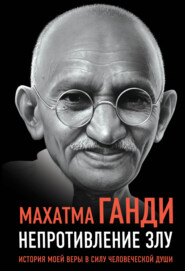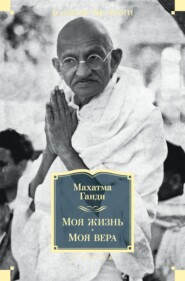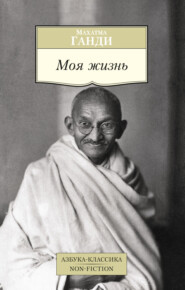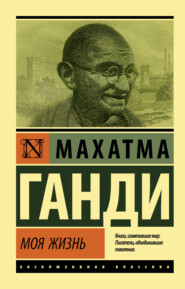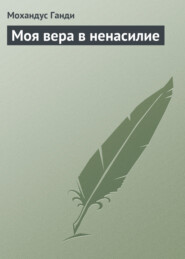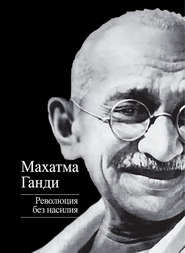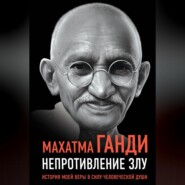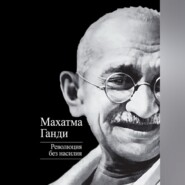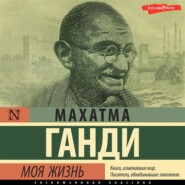По всем вопросам обращайтесь на: info@litportal.ru
(©) 2003-2024.
✖
The Story of My Life / История моей жизни
Настройки чтения
Размер шрифта
Высота строк
Поля
In conversation with my mother and elder brother, he inquired about my studies. Learning that I was at Samaldas College, he said: “The times are changed. And none of you can expect to succeed to your father's gadi (official work) without having had a proper education. Now as this boy is still pursuing his studies, you should all look to him to keep the gadi. It will take him four or five years to get his B. A. degree, which will at best qualify him for a sixty rupees' post, not for a Diwanship. If like my son he went in for law, it would take him still longer, by which time there would be a host of lawyers aspiring for a Diwan's post. I would far rather that you sent him to England. Think of that barrister who has just come back from England. How stylishly he lives! He could get the Diwanship for the asking. I would strongly advise you to send Mohandas to England this very year. Kevalram has numerous friends in England. He will give notes of introduction to them, and Mohandas will have an easy time of it there.”
Joshiji – that is how we used to call old Mavji Dave – turned to me and asked: “Would you not rather go to England than study here?” Nothing could have been more welcome to me. I was finding my studies difficult. So I jumped at the proposal and said that the sooner I was sent the better. My elder brother was greatly troubled in his mind. How was he to find the money to send me?
And was it proper to trust a young man like me to go abroad alone? My mother was very worried. She did not like the idea of parting with me. She had begun making minute inquiries. Someone had told her that young men got lost in England. Someone else had said that they took to meat; and yet another that they could not live there without liquor. “How about all this?” she asked me. I said: “Will you not trust me? I shall not lie to you. I promise that I shall not touch any of those things. If there were any such danger, would Joshiji let me go?”
“I can trust you,” she said. “But how can I trust you in a distant land? I am confused and know not what to do. I will ask Becharji Swami.”
Becharji Swami was originally a Modh Bania, but had now become a Jain monk. He too was a family adviser like Joshiji. He came to my help, and said: “I shall get the boy solemnly to take the three vows, and then he can be allowed to go.” I vowed not to touch wine, woman and meat. This done, my mother gave her permission.
The high school had a send-off in my honour. It was an uncommon thing for a young man of Rajkot to go to England. I had written out a few words of thanks. But I could scarcely read them out. I remember how my head reeled and how my whole frame shook as I stood up to read them. With my mother's permission and blessings, I set off happily for Bombay, leaving my wife with a baby of a few months. But on arrival there friends told my brother that the Indian Ocean was rough in June and July, and as this was my first voyage, I should not be allowed to sail until November.
Meanwhile my caste-people were agitated over my going abroad. A general meeting of the caste was called and I was summoned to appear before it. I went. How I suddenly managed to gather up courage I do not know. Fearless, and without the slightest hesitation, I came before the meeting.
The Sheth – the headman of the community – who was distantly related to me and had been on very good terms with my father, thus spoke to me:
“In the opinion of the caste your proposal to go to England is not proper. Our religion forbids voyages abroad. We have also heard that it is not possible to live there and keep to our religion. One is obliged to eat and drink with Europeans!” To which I replied: “I do not think it is at all against our religion to go to England. I intend going there for further studies. And I have already solemnly promised to my mother to keep away from three things you fear most. I am sure the vow will keep me safe.”
“But we tell you,” replied the Sheth, “that it is not possible to keep our religion there. You know my relations with your father and you ought to listen to my advice.” “I know those relations”, said I. “And you are as an elder to me. But I am helpless in this matter. I cannot change my decision to go to England. My father's friend and adviser who is a learned Brahman sees no objection to my going to England, and my mother and brother have also given me their permission.”
“But will you disregard the orders of the caste?”
“I am really helpless. I think the caste should not interfere in the matter.”
This made the Sheth very angry. He swore at me. I sat unmoved. So the Sheth ordered: “This boy shall be treated as an outcaste from today. Whoever helps him or goes to see him off at dock shall be punishable with a fine of one rupee four annas.”
The order had no effect on me, and I took my leave of the Sheth. But I wondered how my brother would take it. Fortunately he remained firm and wrote to assure me that I had his permission to go, in spite of the Sheth's order.
A berth was reserved for me by my friends in the same cabin as that of Shri Tryambakrai Mazmudar, the Junagadh Vakil.
They also asked him to help me. He was an experienced man of mature age and knew the world. I was yet a youth of eighteen without any experience of the world. Shri Mazmudar told my friends not to worry about me.
I sailed at last from Bombay on the 4th of September.
9. On board the ship
I was not used to talking English, and except for Shri Mazmudar all the other passengers in the second saloon were English. I could not speak to them. For I could rarely follow their remarks when they came up to speak to me, and even when I understood I could not reply. I had to frame every sentence in my mind before I could bring it out. I was innocent of the use of knives and forks and had not the boldness to inquire what dishes on the menu were free of meat. I therefore never took meals at table but always had them in my cabin, and they consisted principally of sweets and fruits which I had brought with me. Shri Mazmudar had no difficulty, and he mixed with everybody. He would move about freely on deck, while I hid myself in the cabin the whole day, only going up on deck when there were but few people. Shri Mazmudar kept pleading with me to associate with the passengers and to talk with them freely.
He told me that lawyers should have a long tongue, and related to me his legal experience. He advised me to take every possible opportunity of talking English and not to mind making mistakes which were obviously unavoidable with a foreign tongue. But nothing could make me conquer my shyness. An English passenger, wanting to be nice to me, drew me into conversation. He was older than I. He asked me what I ate, what I was, where I was going, why I was shy, and so on. He also advised me to come to table. He laughed at my insistence on not eating meat, and said in a friendly way when we were in the Red Sea: “It is all very well so far but you will have to change your decision in the Bay of Biscay. And it is so cold in England that one cannot possibly live there without meat.”
“But I have heard that people can live there without eating meat,” I said.
“Rest assured it is a lie,” said he. “No one, to my knowledge, lives there without being a meat-eater.
Don't you see that I am not asking you to take liquor, though I do so? But I do think you should eat meat, for you cannot live without it.”
“I thank you for your kind advice, but I have solemnly promised to my mother not to touch meat, and therefore I cannot think of taking it. If it be found impossible to get on without it, I will far rather go back to India than eat meat in order to remain there.”
We entered the Bay of Biscay, but I did not begin to feel the need either of meat or liquor.
We reached Southampton, as far as I remember, on a Saturday. On the boat I had worn a black suit, the white flannel one, which my friends had got me, having been kept especially for wearing when I landed. I had thought that white clothes would suit me better when I stepped ashore, and therefore, I did so in white flannels. Those were the last days of September, and I found I was the only person wearing such clothes. I left in charge of an agent of Grindlay and Co. all my luggage including the keys, seeing that many others had done the same and I thought I must do like them.
Someone on board had advised us to put up at the Victoria Hotel in London. Shri Mazmudar and I accordingly went there. The shame of being the only person in white clothes was already too much for me. And when at the Hotel I was told that I should not get my things from Grindlay's the next day, it being a Sunday, I felt very bad.
Dr. Mehta to whom I had wired from Southampton, called at about eight o'clock the same evening. He gave me a hearty greeting. He smiled at my being in white flannels. As we were talking, I casually picked up his top-hat, and trying to see how smooth it was, passed my hand over it the wrong way and disturbed the fur. Dr. Mehta looked somewhat angrily at what I was doing and stopped me. But the mischief had been done.
The incident was a warning for the future, and Dr. Mehta gave me my first lesson in European etiquette.
“Do not touch other people's things,” he said. “Do not ask questions as we usually do in India on first acquaintance; do not talk loudly; never address people as 'sir' whilst speaking to them as we do in India; only servants and subordinates address their masters that way.” And so on and so forth. He also told me that it was very expensive to live in a hotel and recommended that I should live with a private family.
Shri Mazmudar and I found the hotel to be a trying affair. It was also very expensive. There was, however, a Sindhi fellow-passenger from Malta who had become friends with Shri Mazmudar, and as he was not a stranger to London, he offered to find rooms for us. We agreed, and on Monday, as soon as we got our baggage, we paid up our bills and went to the rooms rented for us by the Sindhi friend. I remember my hotel bill came to £ 3, an amount which shocked me. And I had practically starved in spite of this heavy bill! For I could relish nothing. When I did not like one thing, I asked for another, but had to pay for both just the same. The fact is that all this while I had depended on the foodstuffs which I had brought with me from Bombay.
I was very uneasy even in the new rooms. I would continually think of my home and country, and of my mother's love. At night the tears would stream down my cheeks, and home memories of all sorts made sleep out of the question. It was impossible to share my misery with anyone. And even if I could have done so, where was the use? I knew of nothing that would soothe me. Everything was strange – the people, their ways, and even their dwellings. I was a complete stranger to English etiquette and continually had to be on my guard.
There was the additional inconvenience of the vegetarian vow. Even the dishes that I could eat were tasteless. I thus found myself between Scylla and Charybdis. England I could not bear, but to return to India was not to be thought of. Now that I had come, I must finish the three years, said the inner voice.
Part II: In England as student
10. In London
Dr. Mehta went on Monday to the Victoria Hotel expecting to find me there. He discovered that we had left, got our new address, and met me at our rooms. Dr. Mehta inspected my room and its furniture and shook his head in disapproval. “This place won't do,” he said. “We come to England not so much for the purpose of studies as for gaining experience of English life and customs. And for this you need to live with a family. But before you do so, I think you had better be for a period with – I will take you there.”
I gratefully accepted the suggestion and removed to the friend's rooms. He was all kindness and attention. He treated me as his own brother, initiated me into English ways and manners, and accustomed me to talking the language.
My food, however, became a serious question. I could not relish boiled vegetables cooked without salt or spices. The landlady was at a loss to know what to prepare for me. We had oatmeal porridge for breakfast, which was fairly filling, but always I starved at lunch and dinner. The friend continually reasoned with me to eat meat, but I always pleaded my vow and then remained silent.
Both for luncheon and dinner we had spinach and bread and jam too. I was a good eater and had a big appetite; but I was ashamed to ask for more than two or three slices of bread, as it did not seem correct to do so. Added to this, there was no milk either for lunch or dinner. The friend once got disgusted with this state of things, and said: “Had you been my own brother, I would have sent you away. What is the value of a vow made before an illiterate mother and in ignorance of conditions here? It is no vow at all. It would not be regarded as a vow in law. It is pure superstition to stick to such a promise. And I tell you this persistence will not help you to gain anything here. You confess to having eaten and liked meat. You took it where it was absolutely unnecessary, and will not where it is quite essential. What a pity!”
But I was unyielding.
Day in and day out the friend would argue, but I had an eternal no to face him with. The more he argued, the firmer I became. Daily I would pray for God's protection and get it. Not that I had any idea of God. It was faith that was at work – faith of which the seed had been sown by the good nurse Rambha.
I had not yet started upon regular studies. In India I had never read a newspaper. But here I succeeded in cultivating a liking for them by regular reading. This took me hardly an hour. I therefore began to wander about. I went out in search of a vegetarian restaurant. I hit on one in Farringdon Street.
The sight of it filled me with the same joy that a child feels on getting a thing after its own heart.
Before I entered I noticed books for sale exhibited under a glass window near the door. I saw among them Salt's Plea For Vegetarianism. This I purchased for a shilling and went straight to the dining room. This was my first hearty meal since my arrival in England. God had come to my aid. I read Salt's book from cover to cover and was very much impressed by it. From the date of reading this book, I may claim to have become a vegetarian by choice. I blessed the day on which I had taken the vow before my mother. The choice was now made in favour of vegetarianism, the spread of which henceforward became my mission.
11. Playing the English Gentleman
Meanwhile my friend had not ceased to worry about me. He one day invited me to go to the theatre. Before the play we were to dine together at the Holborn Restaurant.
The friend had planned to take me to this restaurant evidently imagining that modesty would prevent me from asking any questions. And it was a very big company of diners in the midst of which my friend and I sat sharing a table between us. The first course was soup. I wondered what it might be made of, but did not dare ask the friend about it. I therefore summoned the waiter. My friend saw the movement and sternly asked across the table what was the matter. With considerable hesitation I told him that I wanted to inquire if the soup was a vegetable soup. “You are too clumsy for decent society,” he angrily exclaimed. “If you cannot behave yourself, you had better go. Feed in some other restaurant and await me outside.”
This delighted me. Out I went. There was a vegetarian restaurant close by, but it was closed. So I went without food that night. I accompanied my friend to the theatre, but he never said a word about the scene I had created. On my part of course there was nothing to say.
That was the last friendly quarrel we had. It did not affect our relations in the least. I could see and appreciate the love underlying all my friend's efforts, and my respect for him was all the greater on account of our differences in thought and action.
But I decided that I should put him at ease, that I should assure him that I would be clumsy no more, but try to become polished and make up for my vegetarianism by cultivating other accomplishments which fitted one for polite society. And for this purpose I undertook the all too impossible task of becoming an English gentleman.






